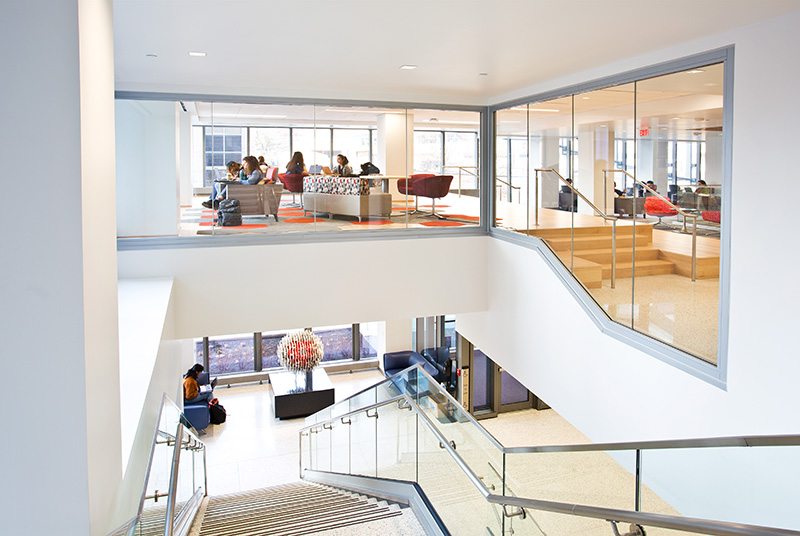
Photo credit: Courtesy of Technical Glass Products
My middle son is ready to launch into university this August and is scheduled to live in a brand-new dormitory. The building has an incredible vision. Here’s how the university describes it: “Designed as an ecosystem that will foster a growing network of social impact practitioners, the new facility will act as a nerve center that equips students with the knowledge, experience and vision required to change the world.”
The design is innovative with an open forum on the first floor to host activities, trainings, speakers and connections. The facility offers several housing options with apartments and microunit communities. Although construction began in 2022, we noticed during his orientation earlier in the summer that there seemed to be some significant work still to be done prior to the formal grand opening.
Having to expedite projects is something I’ve become familiar during my time at Technical Glass Products (TGP). As you may know, we are involved in a lot of school and university projects. On campuses, tenant improvements are often done while students are out of school or out for summer break and are typically planned to be finished before the start of the school year. It’s a tight turnaround in the best of cases and can easily be thrown off schedule through potential delays at almost every point in the process.
University construction is a group assignment
Professionally, I have experienced the demand for rushed schedules for years now—most likely other glazing manufacturers and suppliers are experiencing similar situations. Whether it be for loose glass or fire-rated systems that include doors and frames, being able to accommodate these requests and tight deadlines is crucial.
On the one hand, it ensures your customers can turn to you as a collaborator and solution provider. On the other hand, it can also be allow a college student to have a more seamless transition from home to dorm life.
As an industry, it is important we look beyond the teams closest to us and keep a focus on a project’s end-user. How are we working to ensure occupants will not only be able to access a building but actually enjoy being in it?
This focus on both our customers and those who will be interacting most with our products and systems is why, at TGP, we try to accommodate reasonable requests to expedite projects as much as we can with the resources we have or by working overtime. It is tough work, but the construction industry is a team sport. And part of being on a team is working together to ensure the whole project comes together.
Sink together or swim together
There are many reasons why a project can get off schedule: delays from multiple trades and site conditions, waiting for approvals from the architect, design changes and much more. Anyone who has been in the industry long enough will know the most successful projects happen when all project teams understand they are working toward the same goal—a building that meets the functional and aesthetic goals of a space.
For us in the glazing industry, designing the best building possible can mean custom built systems. When this is the case, the general contractor often pushes the sub-contractors to lean on their supply base. At that point, the heat is turned up on the manufacturer or materials supplier to perform.
Sometimes it is faster shop drawings, a quick turn on a revision, or other times is expediting the production schedule. Whatever the ask may be, it is important to be upfront about expectations, added compensation for tightened schedules and other considerations. This helps ensure a glazing manufacturer can deliver and that there are no surprises along the chain from manufacturer to project-owner.
For university construction, a met deadline deserves recognition
While working with other project teams to expedite projects can be crucial to a successful project, it can be equally necessary to understand how quick turns impact other projects. It is often a delicate balance that requires industry experience and clear communication across multiple projects and project stakeholders.
Though delicate, balancing accommodations for quickened deadlines for some projects without negatively affecting others can be the difference between successfully navigating several quick turns and letting one hiccup ripple throughout a supply chain.
For my son’s dormitory, we have not received any notices as of yet that any other accommodations will be needed—this is 2 weeks prior to move in. Understanding what goes on behind the scenes, I know how much work is going into obtaining that coveted Certificate of Occupancy.
For that, I tip my hat to all involved: the architects, the owners, the construction managers, the general contractors, the sub-contractors, laborers and all the material suppliers involved in this process. These people may not be on the dean’s list, but they deserve high honors.


